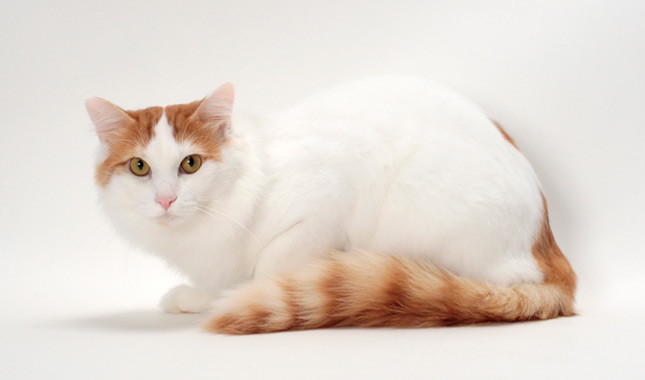The Turkish Van, known for its unique love of water, is a captivating and ancient breed from the Lake Van region in Turkey. With a rich history dating back thousands of years, these cats are celebrated for their striking appearance, playful personality, and distinctive swimming ability.
History and Origins
Originating from Turkey, the Turkish Van is a naturally occurring breed, believed to have existed for thousands of years. Historical artifacts and ancient ornaments, dating back to 5000 B.C., depict cats similar to the Turkish Van. The breed was first introduced to Europe during the Crusades, and its modern history began in 1955 when British citizens Laura Lushington and Sonia Halliday were given two kittens while traveling in Turkey. Lydia Russell, an English breeder, played a pivotal role in the breed’s development in Europe.
Despite initial difficulties in importing these cats from Turkey, the breed was officially recognized by Britain’s Governing Council of the Cat Fancy (GCCF) in 1969. The Turkish Van reached the United States in the 1970s, thanks to breeders Barbara and Jack Reark. The Cat Fanciers’ Association (CFA) accepted the Turkish Van for registration in 1988, granting it Provisional status in 1993.
Today, the breed is protected and preserved in Turkey by institutions like the Turkish College of Agriculture and the Ankara Zoo. Exporting Turkish Vans from Turkey is now restricted, with most breeding stock sourced from Europe.
Physical Characteristics
The Turkish Van is a large, muscular cat known for its distinctive “Van pattern” – a predominantly white body with colored markings on the head and tail, due to the dominant white spotting gene (S). The breed’s unique, water-resistant, cashmere-like coat allows them to swim and stay relatively dry, a trait developed to adapt to the hot climate of their native region.
Their eyes can be amber, blue, or odd-eyed (one of each color). The coat is semi-longhaired and changes with the seasons, becoming thicker in winter and lighter in summer. Turkish Vans do not reach full maturity until they are around 3 to 5 years old.
Temperament and Personality
Turkish Vans are renowned for their high energy, intelligence, and agility. They are playful, affectionate, and form strong bonds with their owners. Known for their love of water, these cats often enjoy playing in water and may even join their owners for a swim. Turkish Vans are also highly curious and enjoy exploring their surroundings, making them excellent companions for active households.
Despite their playful nature, Turkish Vans are also known to be very affectionate. They enjoy spending time with their human families and can be quite vocal, often communicating with a variety of sounds. These cats are also intelligent and can be trained to perform tricks or play games, providing endless entertainment for their owners.
Health and Care
Turkish Vans are generally healthy cats with a lifespan of 12 to 17 years. However, like all breeds, they can be prone to certain health issues. Regular veterinary check-ups, a balanced diet, and proper grooming are essential to maintaining their health.
Their semi-longhaired coat requires regular grooming to prevent matting and reduce shedding. Brushing them a few times a week will help keep their coat in good condition. Additionally, Turkish Vans are active cats and need plenty of physical and mental stimulation to stay happy and healthy. Providing them with toys, climbing structures, and opportunities for play will help keep them engaged and satisfied.
Living with a Turkish Van
Living with a Turkish Van can be a delightful experience. These cats are known for their affectionate and playful nature, making them excellent companions for families, singles, and seniors alike. Their love of water and active disposition mean they thrive in environments where they can explore and engage in physical activities.
Turkish Vans are also known for their adaptability. They can adjust well to various living conditions, whether in a spacious house or a smaller apartment, as long as they have enough space to play and explore. Their social nature means they enjoy being part of the family and often seek out attention and interaction from their human companions.
Conclusion
The Turkish Van is a unique and fascinating breed with a rich history and distinctive characteristics. Known for their love of water, playful personality, and affectionate nature, these cats make wonderful companions for those willing to provide them with the care and attention they need. By understanding their history, physical traits, and temperament, potential owners can better appreciate what makes the Turkish Van such a special breed. Whether you’re drawn to their striking appearance or their engaging personality, the Turkish Van is sure to bring joy and companionship to any household.
For more detailed information, please visit the original article.

